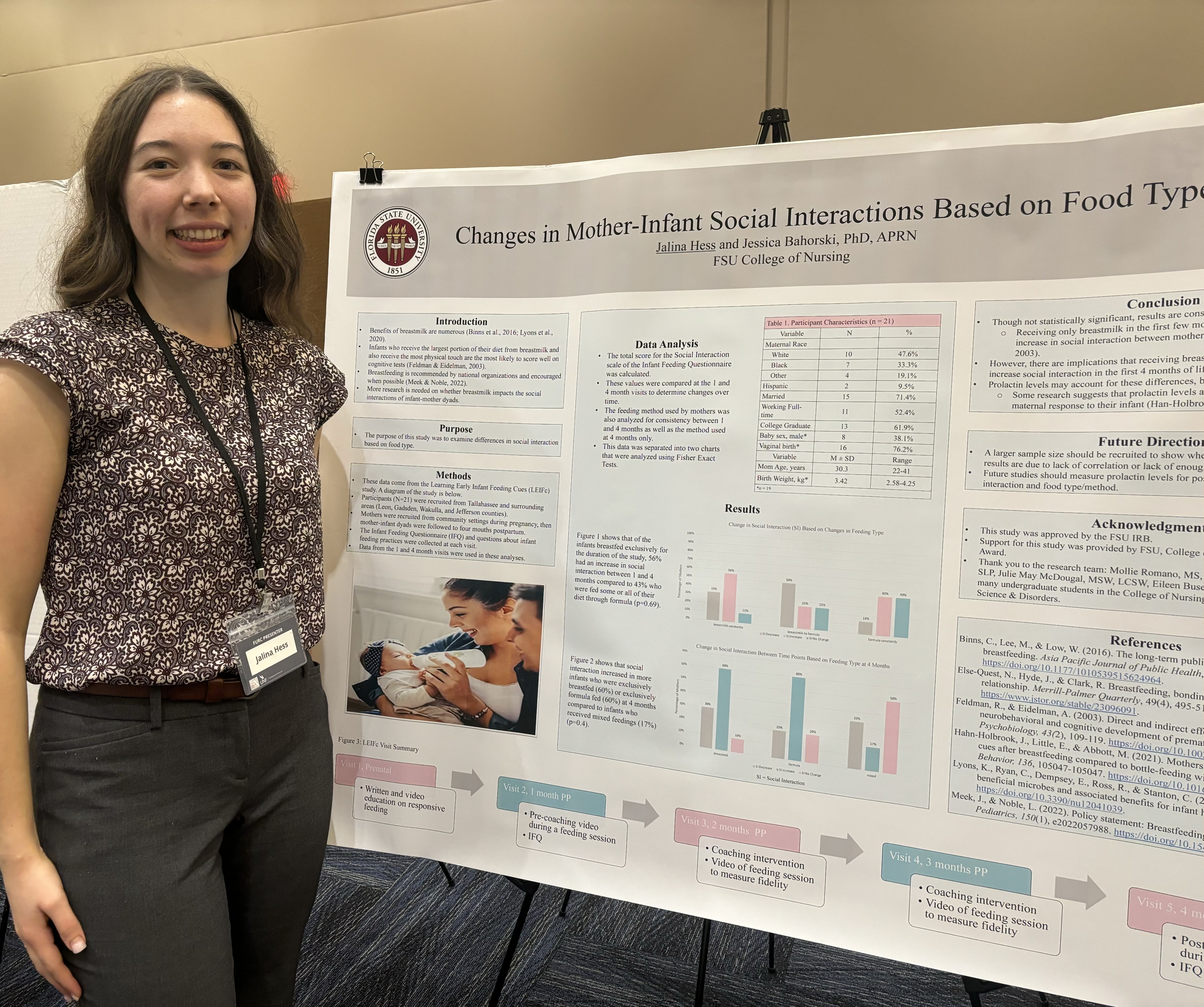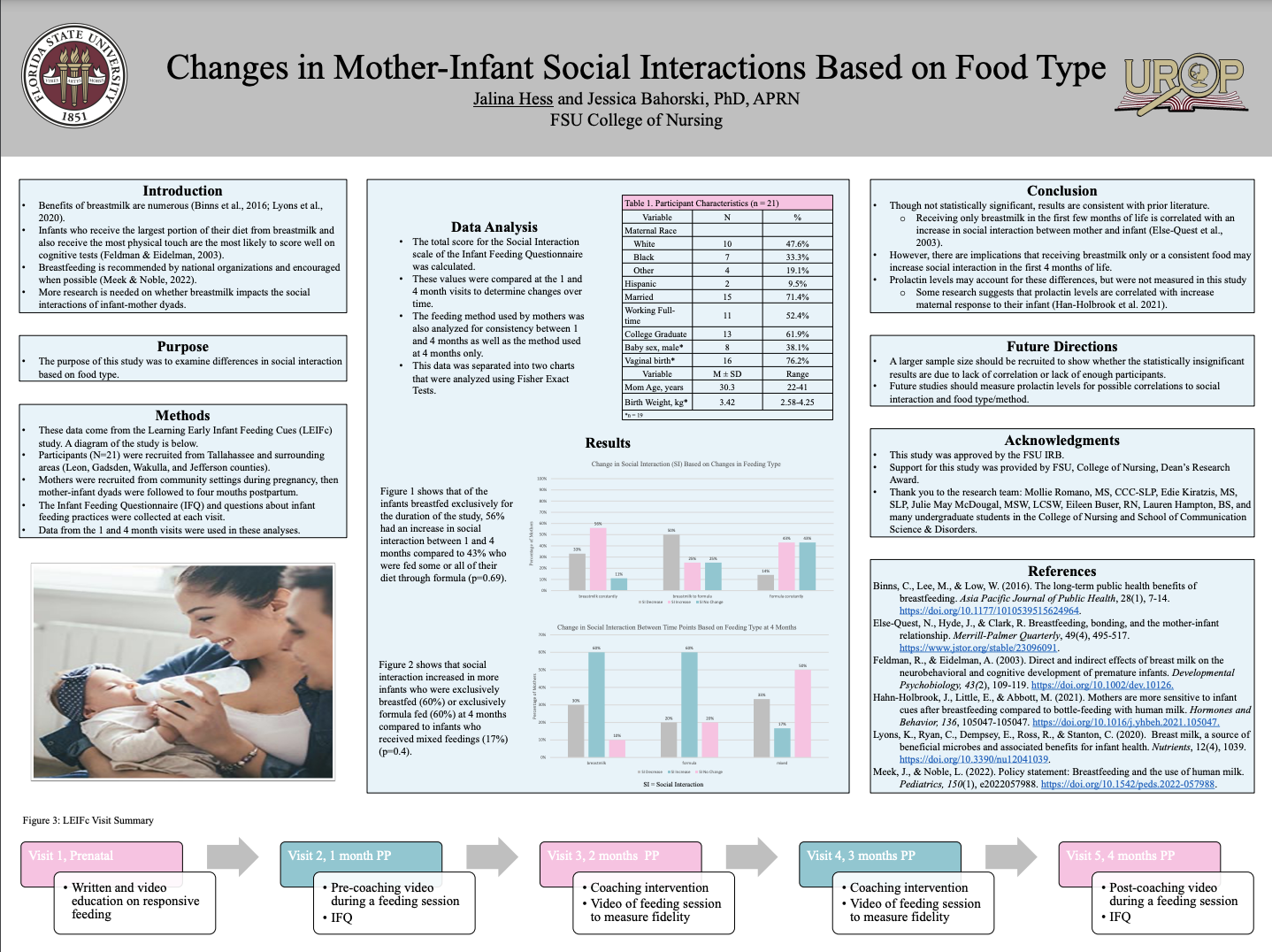Research Symposium
24th annual Undergraduate Research Symposium, April 3, 2024
Jalina Hess Poster Session 2: 10:45 am - 11:45 am/212

BIO
Hello everyone! My name is Jalina Hess, and I am from Panama City Beach, FL. I am interested in pursuing a career as either a women's health nurse practitioner or nurse midwife. Similarly, my research interests fall into these domains of obstetrics and neonatology with a specific interest in the physiological and social impacts of breastfeeding.
Changes in Mother-Infant Social Interactions Based on Food Type
Authors: Jalina Hess, Dr. Jessica BahorskiStudent Major: Nursing
Mentor: Dr. Jessica Bahorski
Mentor's Department: College of Nursing Mentor's College: Florida State University Co-Presenters:
Abstract
Benefits of breastmilk are numerous. Studies have shown differences in infants fed breastmilk versus formula; thus breastmilk is encouraged when possible. Infants who receive the largest portion of their diet from breastmilk and also receive the most physical touch are the most likely to score well on cognitive tests. However, more research is needed on whether breastmilk impacts social interactions such as physical touch between a mother and her infant. The purpose of this study was to examine differences in social interaction based on food type. Mother-infant dyads (N=21) completed study visits at infant age of 1 to 4 months. Social interaction was measured with the Infant Feeding Questionnaire and mothers reported what the infant was fed at each visit. Of the infants breastfed exclusively for the duration of the study, 56% had an increase in social interaction between 1 and 4 months compared to 43% who were fed some or all of their diet through formula (p=0.69). Additionally, social interaction increased in more infants who were exclusively breastfed (60%) or exclusively formula fed (60%) at 4 months compared to infants who received mixed feedings (17%) (p=0.4). These findings were not statistically significant likely due to the small sample size but suggest that receiving breastmilk only or a consistent food may increase social interaction in the first 4 months of life. Future research should test this correlation with a larger sample size. Additionally, maternal prolactin levels should be explored as research has suggested a correlation with social interaction.
Keywords: Breastfeeding, Social Interaction, Infants


